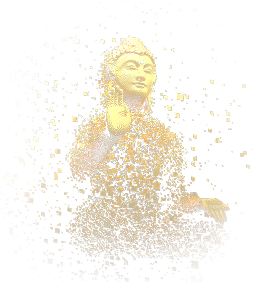
Where is Buddhaland
The name Buddhaland draws its inspiration from the Sanskrit term buddhakṣetra, often translated as “Buddha field” or “Buddha land” in Buddhist cosmology. It refers to the sphere of influence and activity of a Buddha. For example, our own world, known in Buddhism as the World of Endurance (Sahāloka), is considered the domain of Shakyamuni Buddha, the historical figure Siddhartha Gautama, who renounced his throne and worldly wealth to attain awakening and teach the path to liberation.
The cosmos, as envisioned in Mahayana Buddhism, is vast and teeming with countless Buddha lands. Far to the west of our world lies the Western Pure Land (Sukhāvatī), the realm of Amitabha Buddha. In Pure Land Buddhism, this is the paradisiacal destination devotees aspire to be reborn into—a place of perfect bliss and spiritual cultivation. To achieve this goal, followers of the Pure Land school in China and Japan recite Amitabha’s name as their core practice. Similarly, to the east, there exists the realm of the Medicine Buddha (Bhaisajyaguru), a land associated with healing and the alleviation of suffering.
Mahayana Buddhism, practiced widely across East Asia and the Tibetan regions, teaches that the cosmos is filled with innumerable Buddhas and their respective lands. This vision of a multiverse, articulated thousands of years ago by Shakyamuni Buddha, continues to awe contemporary scientists, as it strikingly parallels modern concepts of parallel universes and an infinite cosmos. The ancient Buddhist understanding of the universe, with its myriad Buddha lands, invites us to expand our imagination and contemplate the boundless possibilities of existence.

Yet, the most profound revelation lies closer to home: you, too, have the potential to become a Buddha. According to Buddhist teachings, all beings possess Buddha nature—the innate capacity for awakening. Through right practice, ethical living, and the cultivation of wisdom and compassion, anyone can realize this potential and, in turn, create their own Buddha land, a sphere of influence that benefits countless beings.
The suffix “-land” is often used in contemporary branding to evoke a sense of a distinct, immersive, and even magical space. Transforming Buddha Land into Buddhaland conjures imagery of a realm that is both timeless and deeply relevant to modern life. Buddhaland is not merely a nod to ancient spirituality; it is a vision of a vibrant, contemporary community rooted in the timeless wisdom of Buddhism. It is a land of future Buddhas—a space where ancient teachings meet the dynamism of today’s world, inviting all to explore their potential for awakening.
Do you have more questions about Buddhaland? Let us know!






